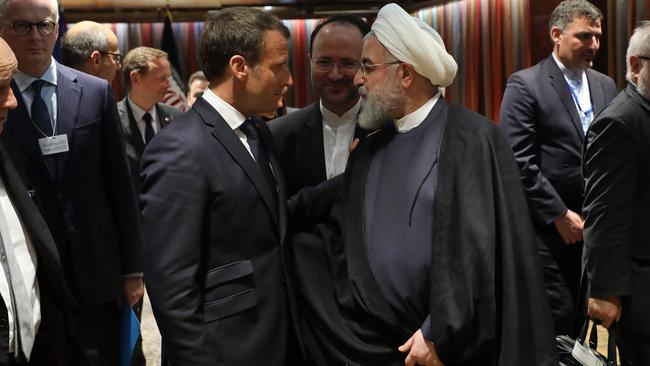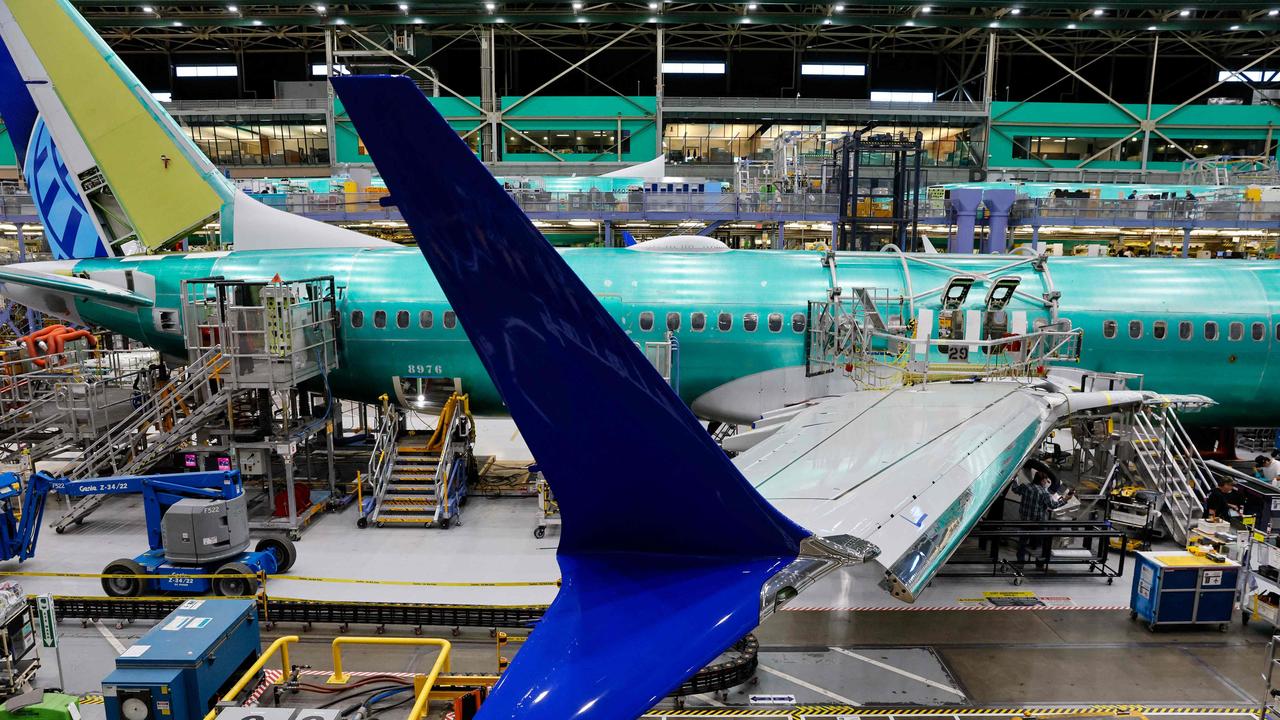Leaders blame Iran for Saudi oil attacks and urge new deal
The leaders of Britain, France and Germany joined the US in blaming Iran for this month’s attacks on Saudi Arabia.

The leaders of Britain, France and Germany have joined the US in blaming Iran for this month’s attacks on Saudi Arabia and say the time has come for Tehran to start talks on a new, long-term agreement dealing with its nuclear, regional and missile activities.
In a joint statement on Tuesday, British Prime Minister Boris Johnson, along with President Emmanuel Macron of France and Chancellor Angela Merkel of Germany, said they continue to support the 2015 nuclear deal but said the time has come for Iran to start talks on a longer-term, more comprehensive agreement, as Washington has urged.
While the statement marks a significant shift on Iran by Europe’s powers, are still far from endorsing all of Washington’s demands for a new agreement. President Donald Trump said he welcomed moves for a broader agreement.
“Let’s do a better deal” with Iran, Mr Johnson told NBC, making him the first European leader to suggest the 2015 nuclear pact could be reworked.
“I think there’s one guy who can do a better deal, and that is the President of the United States. I hope there will be a Trump deal, ” he said, calling the President a “very, very brilliant negotiator”.
The Europeans’ push for broader talks came amid growing fears that tensions in the Persian Gulf could quickly escalate following the alleged Iranian attack on September 14 on Saudi Arabia’s oil infrastructure. That could lead to a cut-off in oil supplies and even a major war in the region. Iran has denied responsibility for the attack, pointing out Houthi rebels fighting a Saudi-led coalition in Yemen had claimed responsibility.
“It is clear that we need to re-establish deterrence,” Brian Hook, the US special representative for Iran, told the Asia Society. “We are one missile strike away from a regional war.”
Until now, the EU and its three biggest member states, Britain, France and Germany, have strongly defended the 2015 deal, which lifted most international sanctions on Iran in exchange for strict but temporary limits on its nuclear activities.
However, France has been in talks with Iran and the US about ways of de-escalating tensions between Tehran and Washington. The French have been working up proposals, so far rejected by Washington, under which the US would ease sanctions in return for Iran’s compliance with the deal and possibly other concessions.
France has in the past called for a supplemental agreement that would build on the nuclear deal and more permanently shut off Iran’s path to a nuclear weapon.
Iran has rejected any such changes to the nuclear pact and there could be differences between the Europeans and Washington over what Iran should be offered to induce Tehran to consider such a proposal. European countries in the past have condemned renewed US sanctions on Iran, warning they threatened to drive Tehran away from the deal.
Iranian leaders have said they won’t hold talks with Washington until the US drops its renewed sanctions. It has threatened to take fresh steps away from the nuclear deal in November.
Mr Trump said on Tuesday he could not rule out a meeting with Iranian counterpart Hassan Rouhani at the UN this week, but no encounter was yet scheduled. “I never rule anything out,” he said, adding that he had “nothing scheduled at this moment”.
The Trump administration pulled out of the nuclear deal in May 2018, with Mr Trump saying the accord failed to stop Iran from pursuing a nuclear weapon in the future. Washington has since imposed sweeping sanctions on Iran.
“We seek comprehensive negotiations that are truly comprehensive,” Mr Hook said. “This includes the nuclear file but also Iran’s role in the region, its missile development, support for terrorism, and wrongful detention of dual and foreign nationals, including many American citizens”.
Mr Hook reiterated that the Trump administration was open to diplomacy with Tehran. However, he confirmed there were no back-channel talks between US and Iranian officials. He said the administration would step up the economic pressure, while expressing concern Iran might again mount attacks against US allies.
Mr Hook said the range and sophistication of the weapons used in the attack went beyond the capabilities of the Iran-backed Houthis and none of the drones or cruise missiles were fired from Iraqi territory. US officials say all of the drones and cruise missiles used in the attack were launched from Iranian territory.
The Wall Street Journal



To join the conversation, please log in. Don't have an account? Register
Join the conversation, you are commenting as Logout